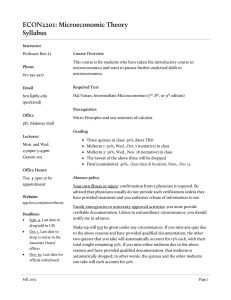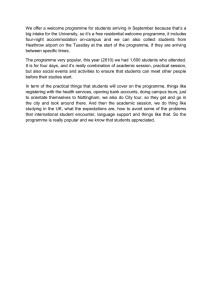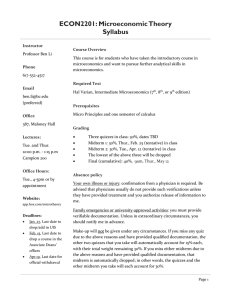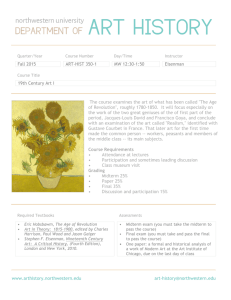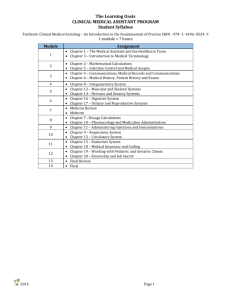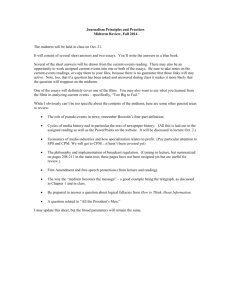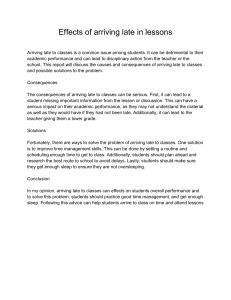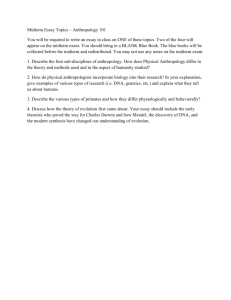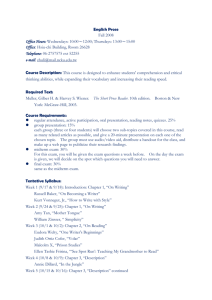com 390: special topics: crisis communication
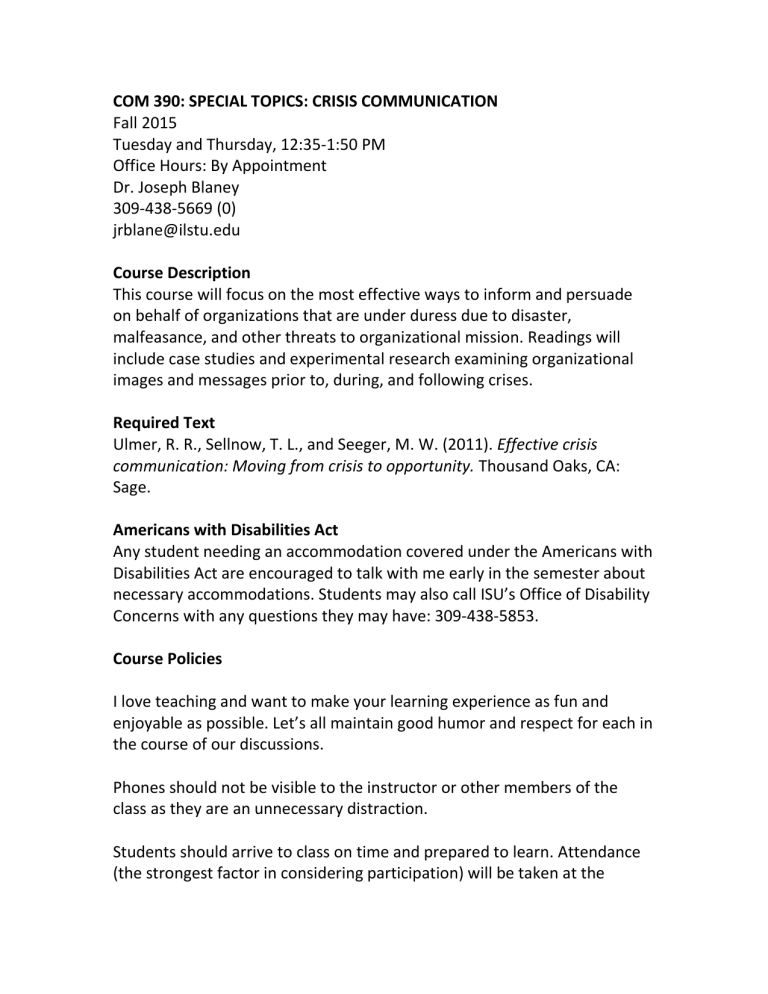
COM 390: SPECIAL TOPICS: CRISIS COMMUNICATION
Fall 2015
Tuesday and Thursday, 12:35-1:50 PM
Office Hours: By Appointment
Dr. Joseph Blaney
309-438-5669 (0) jrblane@ilstu.edu
Course Description
This course will focus on the most effective ways to inform and persuade on behalf of organizations that are under duress due to disaster, malfeasance, and other threats to organizational mission. Readings will include case studies and experimental research examining organizational images and messages prior to, during, and following crises.
Required Text
Ulmer, R. R., Sellnow, T. L., and Seeger, M. W. (2011). Effective crisis
communication: Moving from crisis to opportunity. Thousand Oaks, CA:
Sage.
Americans with Disabilities Act
Any student needing an accommodation covered under the Americans with
Disabilities Act are encouraged to talk with me early in the semester about necessary accommodations. Students may also call ISU’s Office of Disability
Concerns with any questions they may have: 309-438-5853.
Course Policies
I love teaching and want to make your learning experience as fun and enjoyable as possible. Let’s all maintain good humor and respect for each in the course of our discussions.
Phones should not be visible to the instructor or other members of the class as they are an unnecessary distraction.
Students should arrive to class on time and prepared to learn. Attendance
(the strongest factor in considering participation) will be taken at the
beginning of class. Students arriving late harm the learning environment.
While we all run late for various reasons from time to time, arriving on time and attending will be very important in this course (and important to your professional development as well).
Late work will be penalized at a rate of 10% per day.
You are welcomed to call me on my cell phone, but never between 10:00
PM and 8:00 AM. The best place to reach me in the morning is in my
College of Arts and Sciences office (438-5669). I am reachable by cell or in my Fell Hall office in the afternoons.
The best way to reach me is via email. I typically return email within an hour
or two, but always within 24 hours. As a general rule, saying “I tried calling you last night about the paper that was due this morning” will not be taken seriously.
Academic dishonesty will result in failure for the course. Turning in papers on time with content as requested, attending class, and participating actively will likely lead to a positive grade outcome.
Grading Scale
90% and above=A
80% to 89%=B
70% to 79%=C
60% to 69%=D
Below 60%=F
Assignments
Detailed Abstract 1: 10 Points
Detailed Abstract 2: 10 Points
Midterm Exam: 20 Points
Case Study Presentation: 20 Points
Participation: 10 Points
Final Exam: 30 Points
Course Schedule
Week 1: Introductions (Chapter 1)
Week 2: Theoretical Approaches to Crisis (Chapter 2)
Week 3: Lessons on Effectiveness (Chapter 3)
Week 4: Applications on Effectiveness (Chapter 4)
Week 5: Lessons on Uncertainty During Crisis (Chapter 5)
Week 6: Applications on Uncertainty (Chapter 6)
Week 7: Lessons on Effective Crisis Leadership (Chapter 7)
Week 8: Applications of Effective Crisis Leadership (Chapter 8)
Week 9: Midterm Review and Exam
Week 10: Turning Failure Inside Out (Chapter 9)
Week 11: Risk Communication (Chapter 10)
Week 12: Crisis and Ethics (Chapter 11)
Week 13: Crisis and Renewal (Chapter 12)
Week 14: Case Studies
Week 15: Case Studies
Final Exam: TBD
